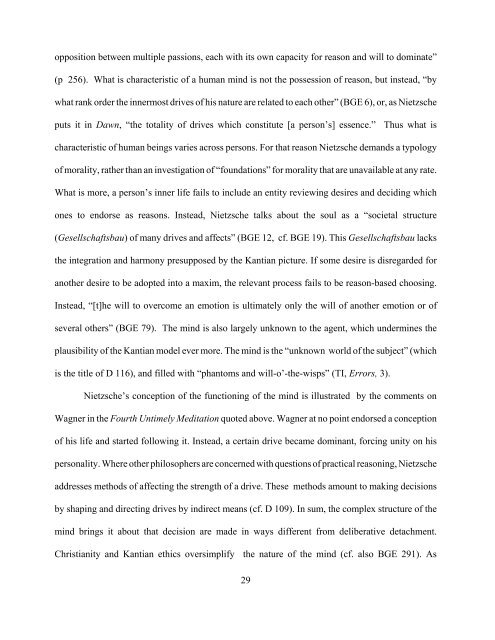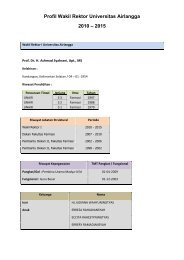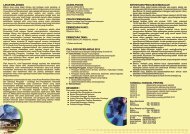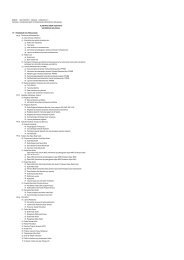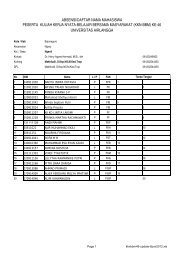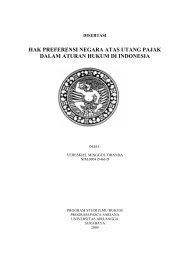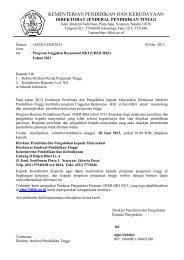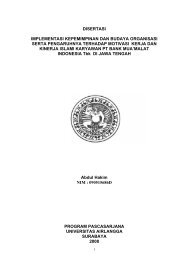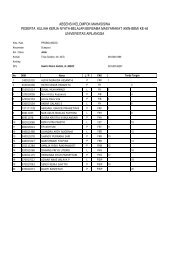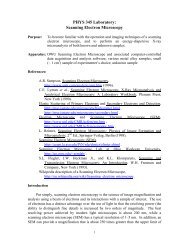Nietzsche's Naturalistic Ethics - UNAIR | E-Book Collection
Nietzsche's Naturalistic Ethics - UNAIR | E-Book Collection
Nietzsche's Naturalistic Ethics - UNAIR | E-Book Collection
Create successful ePaper yourself
Turn your PDF publications into a flip-book with our unique Google optimized e-Paper software.
opposition between multiple passions, each with its own capacity for reason and will to dominate”(p 256). What is characteristic of a human mind is not the possession of reason, but instead, “bywhat rank order the innermost drives of his nature are related to each other” (BGE 6), or, as Nietzscheputs it in Dawn, “the totality of drives which constitute [a person’s] essence.” Thus what ischaracteristic of human beings varies across persons. For that reason Nietzsche demands a typologyof morality, rather than an investigation of “foundations” for morality that are unavailable at any rate.What is more, a person’s inner life fails to include an entity reviewing desires and deciding whichones to endorse as reasons. Instead, Nietzsche talks about the soul as a “societal structure(Gesellschaftsbau) of many drives and affects” (BGE 12, cf. BGE 19). This Gesellschaftsbau lacksthe integration and harmony presupposed by the Kantian picture. If some desire is disregarded foranother desire to be adopted into a maxim, the relevant process fails to be reason-based choosing.Instead, “[t]he will to overcome an emotion is ultimately only the will of another emotion or ofseveral others” (BGE 79). The mind is also largely unknown to the agent, which undermines theplausibility of the Kantian model ever more. The mind is the “unknown world of the subject” (whichis the title of D 116), and filled with “phantoms and will-o’-the-wisps” (TI, Errors, 3).Nietzsche’s conception of the functioning of the mind is illustrated by the comments onWagner in the Fourth Untimely Meditation quoted above. Wagner at no point endorsed a conceptionof his life and started following it. Instead, a certain drive became dominant, forcing unity on hispersonality. Where other philosophers are concerned with questions of practical reasoning, Nietzscheaddresses methods of affecting the strength of a drive. These methods amount to making decisionsby shaping and directing drives by indirect means (cf. D 109). In sum, the complex structure of themind brings it about that decision are made in ways different from deliberative detachment.Christianity and Kantian ethics oversimplify the nature of the mind (cf. also BGE 291). As29


